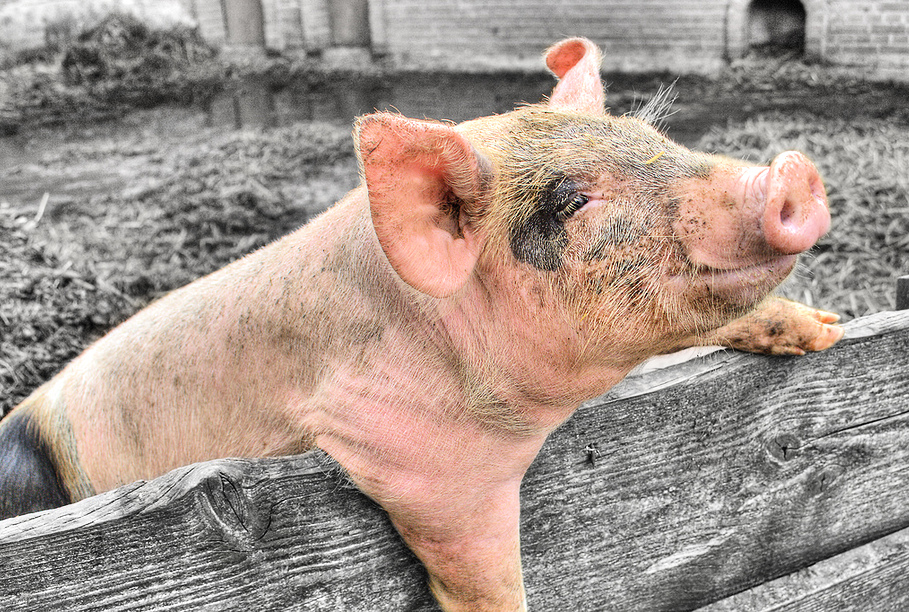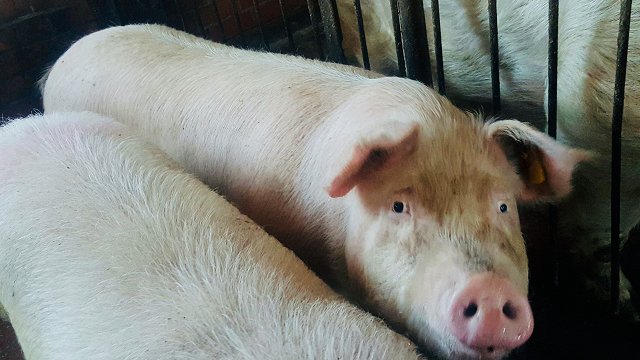Lithuanian public radio reported Saturday that its Agriculture ministry was again floating the idea of constructing a jointly-funded fence along Poland’s and the Baltic states’ borders with Belarus and Russia to stop the cross-border migration of infected wild boar through the woods. This comes after the Danish-owned Idavang pig farm in Ignalina district had to cull close to 20,000 animals this weekend following the confirmed infection of just a single swine Friday.
Last year’s €12m wall-building proposal from Lithuania was rejected by the European Commission (EC) as too costly. Instead the EC has earmarked slightly less than €2m to cover barely a tenth of what Lithuania says it needs for its declared battle against ASF, reports the Lithuania Tribune.
Russia and Belarus have allowed rampant outbreaks of classical and African swine fever in their forest territories, where wild border zones are quite porous for boar populations migrating in the affected Baltic region state frontiers.
Meanwhile in Latvia, as new cases are confirmed and cullings of exposed pig herds go on in counties where the government has declared a state of emergency for monitoring and isolating the ASF outbreak, some local residents continue to challenge the harried efforts of the Food and Veterinary Service (PVD).
For the past week, PVD inspectors have been visiting farm after farm to check whether homesteads have put into place the so-called biosecurity measures essential to containing the spread of ASF throughout Latvia’s southeastern border areas with Belarus, as well as its northeastern frontiers with Russia and Estonia.
Since Latvia's first-ever outbreak of African swine fever was detected on June 26 the PVD has confirmed ASF in 30 wild boar and 28 domestic pig specimens from 14 homesteading farms, prompting the culling and incineration of just short of 200 swine carcasses.
Altogether there are 630 farming homesteads currently affected in the state of emergency territories, raising a total of around 2000 pigs. They are mostly small farms raising between 2 to 4 pigs for subsistence purposes. If the household cannot ensure properly closed, regularly cleaned and disinfected pens prohibited from contact with other animals or people outside by or after July 31, their herds will have to be culled.
Many locals are already slaughtering their pigs in anticipation of the orders, for which they can apply for compensation only if their animals were registered with the PVD.
“Everybody’s interested in the money,” said PVD Southern Latgale department head Antons Lazdans in reference to those who were unlikely to make the effort to put biosecurity measures into place.
Still, some residents vow to take up weapons to keep their beloved domestic pigs from being taken away from them.
“All I have are these two piglets, you can’t even call them pigs. Of course I’m keeping them! Nothing but just keeping them and feeding them. But if anyone comes into my yard, I’ll shoot them down,” 80-year old Tamara warned Latvian Radio (LR) Sunday.
Some of the veterinary health authorities’ discoveries have exposed other forms of “unacceptable” behavior by local residents which threaten the PVD’s efforts. At one site in Valka district near Ergeme a PVD ribbon to enforce the quarantine zone had been willfully removed by Sunday after being put out Thursday evening.
Also, in Babite district near Riga a farmer came upon hundreds of kilograms of dumped pork byproducts in the woods that clearly had to have come from a larger commercial catering establishment or slaughterhouse.
“The meat was marked with the stamp of a Polish slaughterhouse and we will get to the bottom of which companies bought this particular supplier’s meat,” PVD chief Maris Balodis told LR Saturday.
Balodis urged people to notify the PVD about such activities, which he said are investigated jointly with the police. The public will be notified as to the results when the investigation is complete, he promised.
Hunters are also wincing at the PVD’s plan to gradually reduce the density of Latvia’s wild boar population in the woods. They claim the most essential measures should be focused on the agriculture rather than the hunting sector.
As veteran Audrini county hunter Janis Mikjanskis told LTV news Sunday, “to be honest, I don’t think the wild boar are the biggest culprits in spreading this virus. I think people need to be more careful, observe all the measures,” he pointed out.
Mikjanskis added that hunters are refraining from shooting sows and possibly leaving her helpless piglets behind, despite PVD recommendations that they be hunted as well. He also said local hunters do not practice the handing over of their hunt to the PVD to receive the €200 compensation offered for the laboratory submission. There have been no cases yet confirmed in Audrini county and nobody is afraid to put wild boar meat on their dinner tables. They hold on to hope that the outbreak will be stopped and there will be no need to start wiping out a large part of Latvia’s wild boar population.





























